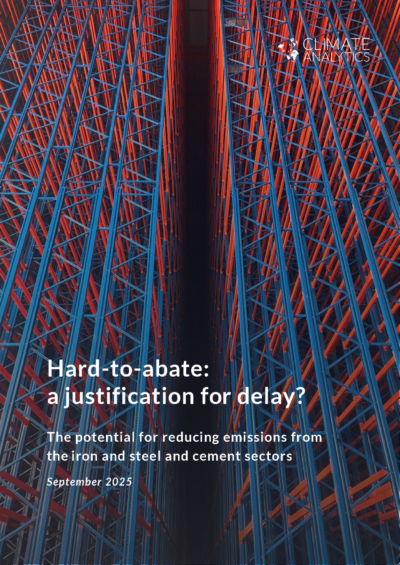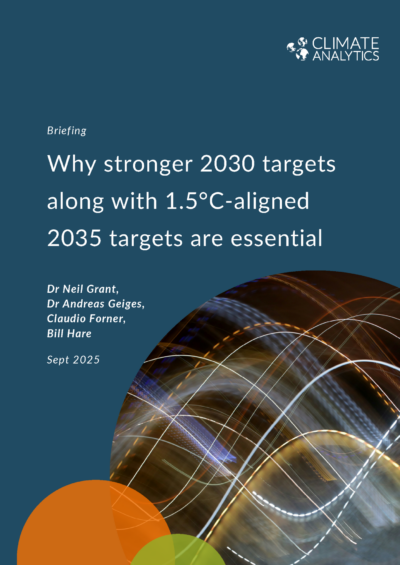Publications
Share


Reports
Claims from both the iron and steel - and cement - sectors that their emissions are "hard to abate" is slowing down real progress these sectors could be making on cutting emissions. This report unpacks the reality.

Briefings
Both stronger 2030 targets and 1.5°C-aligned 2035 NDCs are needed to keep 1.5°C alive, argues this briefing. Without both, we risk overshooting the 1.5°C limit higher and longer, crossing dangerous tipping points, and losing sight of the Paris Agreement goals.

Reports
Governments plan to produce more than double the fossil fuels than is consistent with 1.5°C - this 'production gap' has widened since they committed to transitioning away from fossil fuels at COP28 in 2023

Reports
This report answers the question: what would science-based, 1.5˚C-compatible 2030 and 2035 targets, and a net zero roadmap, look like for Australia?

Reports
Cement is an integral base material for the global economy, but it poses a major climate challenge. Given China produces more than half the world’s cement, generating 13-15% of its national CO2 emissions, decarbonising this sector is critical to meeting China’s climate goals.
